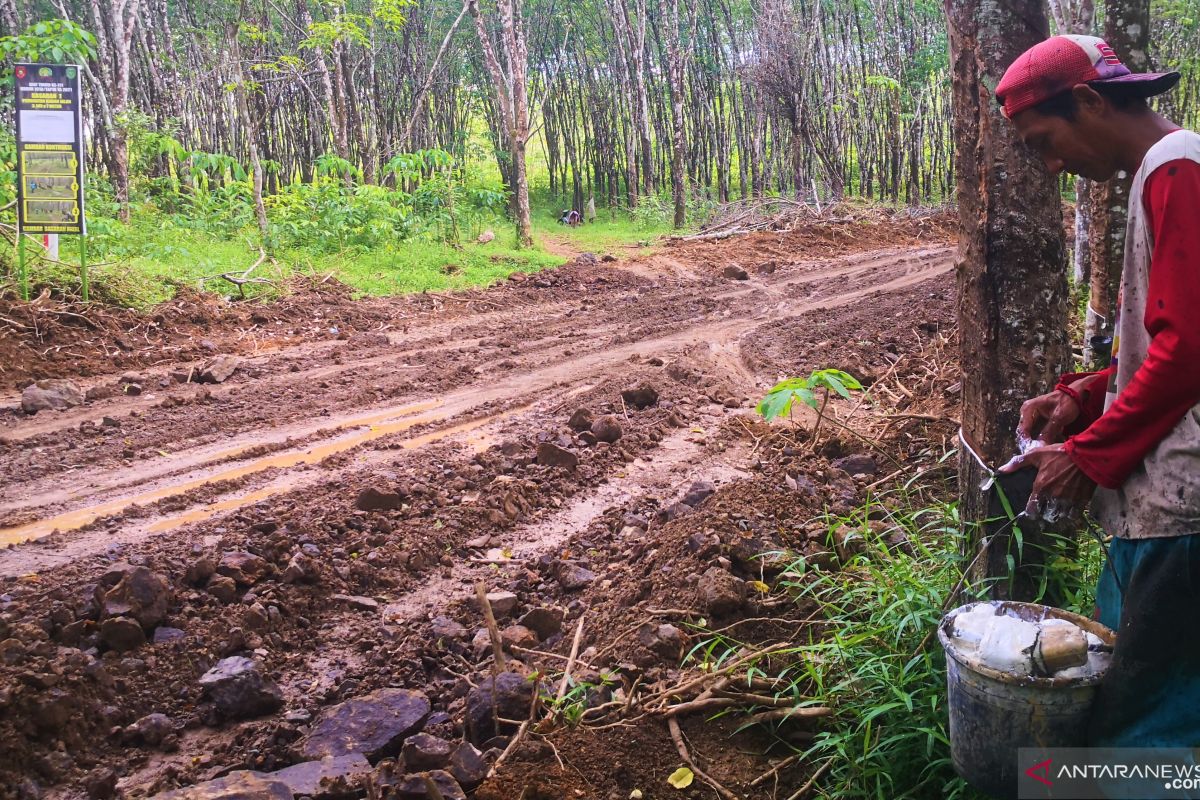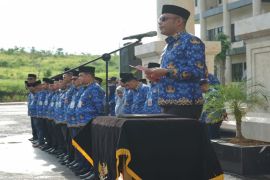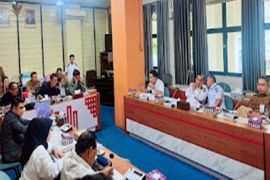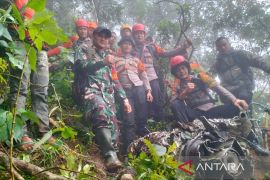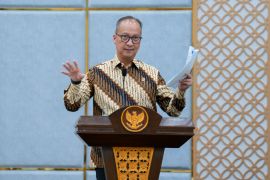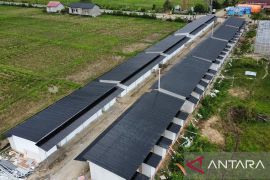Rantau, S Kalimantan (ANTARA) - The construction of 3.1 kilometers road by the TNI through the 111th TNI Integrated Village Development (TMMD) program in Tapin District, South Kalimantan, has been able to solve the problems of rubber farmers and in general, have a good impact on people's welfare.
Sukardi (38), a rubber farmer whose garden is right next to the road construction, said there were frequent small quarrels among farmers because of the path from one to another plantation.
“When we go to tap rubber then transport it, the path we pass is a rubber plantation. Yes, sometimes there are things uncomfortable among rubber farmers,” he said in the garden, where he transports 63 kilograms of rubber three times a day.
Podono (70), a rubber farmer in the local village also telling the same thing. Thus he believes the road built through TMMD will have a good impact, not only on farmers but on the mobility of people and goods.
"Yes, almost all people took shortcuts through other people's garden. Obviously, the road built by the army is very helpful,” he said.
Based on 2019 data from the Central Statistics Agent (BPS) the overall rubber productivity in the sub-district was recorded at 454,300 tons from 941 hectares of land. The average yield per hectare was 668 kg annually.
Every year there is an increase in the planted area. Data in 2016, rubber planted area was only 40.15 hectares.
Sub-district head of Salam Babaris Ahmad acknowledged the complaints of farmers so far. He said the TMMD road would generally have a good impact on the welfare of the community.
“The average population is doing rubber farming. In Salam Babaris Sub-district people also plant food crops. The road will absolutely have an impact on the community,” he said.
Related news: TMMD causes village economy to increase
Related news: TNI disseminates army recruitment at Tapin TMMD
In 2019, BPS recorded the sub-district produced 2,031 tons of food crops or an average of 46.47 quintals per hectares from 746 hectares of the planted area. The food crops are rice, corn, cassava, and soybeans.
“The food crops are able to meet the need of the Salam Babaris Sub-district itself,” said the Head of Agriculture Agency Wagimin.
Salam Babaris sub-district has six villages, namely Kambang Habang Baru, Kambang Habang Lama, Suato Baru, Suato Lama, Pantai Cabe, and Salam Babaris, which were transmigration area in the 1970s. BPS 2019 data showed the total population was 12,116 people.
Read also: Tanah Laut's stunting falls to 9.5 percent


